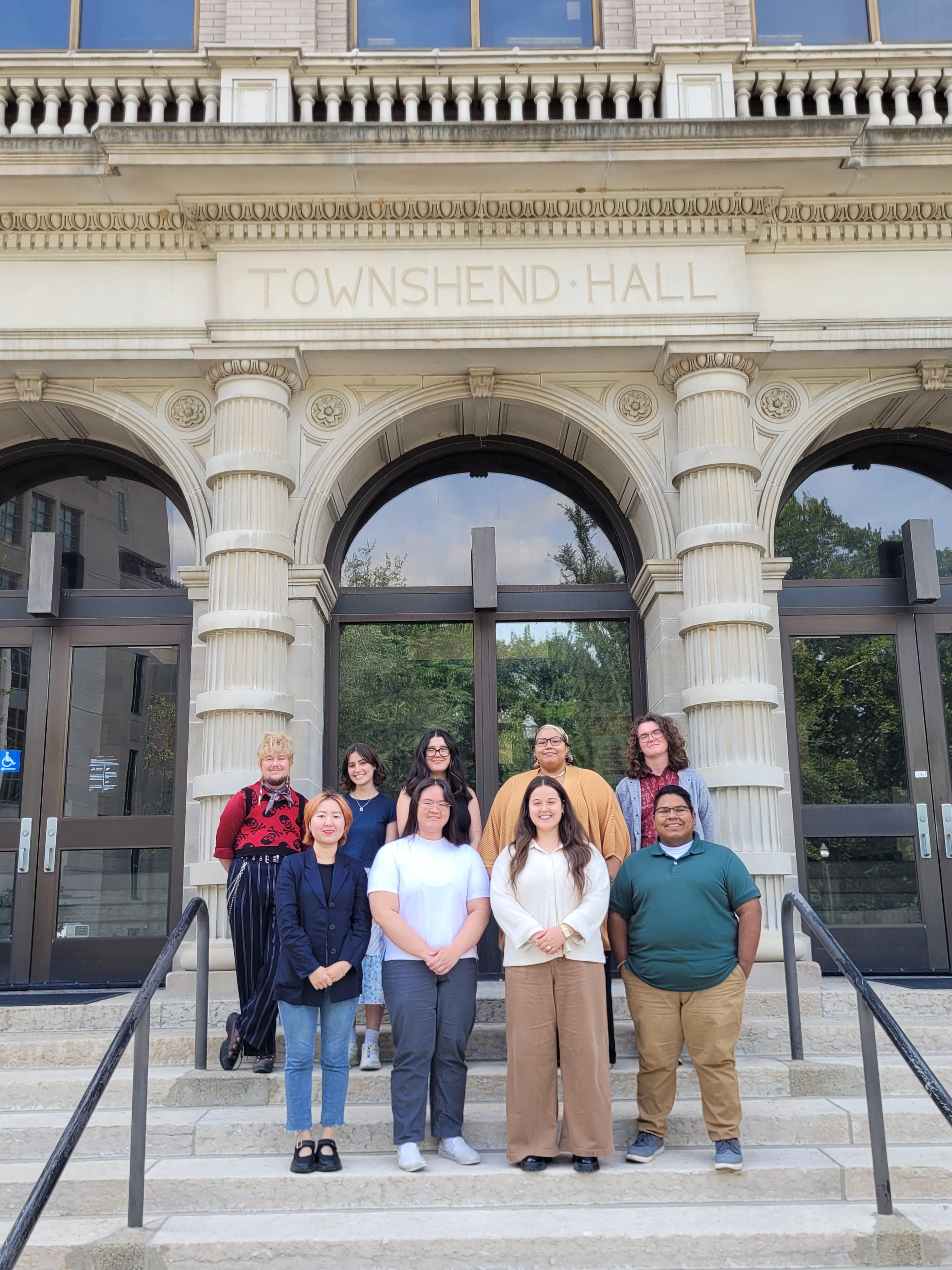Sociology PhD Program
Our department is home to a diverse group of more than 60 graduate students from across the nation and the world. We have expertise in a broad range of substantive and methodological approaches to sociological research. Whatever your research interests or methodological orientation, we believe you will find the OSU Department of Sociology an invigorating and collegial place to call your intellectual home as you pursue your PhD. We invite you to become part of our vibrant community!

The OSU Sociology graduate program is a rigorous yet flexible PhD curriculum that allows you to specialize in any number of sociology research areas.
We regularly offer graduate seminars and other training opportunities in a wide variety of substantive areas, such as:
- Community and Urban Studies
- Criminology/Criminal Justice
- Demography (Migration/Immigration, Fertility, Mortality)
- Education and Work/Labor Markets
- Family and Children/Youth
- Political/Social Movements
- Population Health/Medical Sociology
- Social/Economic Inequality
- (eg. Social Stratification, Race and Ethnicity, Gender)
Our many methods courses (quantitative and qualitative) provide you both basic understandings of sociological research methods, and in-depth training in more advanced methods.
General Milestones by Year in Program
Year 1: Coursework
Year 2: Coursework; Defend 2nd year paper; Present 2nd year poster
Year 3: Prepare and complete candidacy exams; complete coursework
Year 4: Prepare and defend dissertation proposal
Year 5: Dissertation
Year 6: Job search and complete dissertation
Required
4 BASIC METHODS COURSES
Qualitative Methods in Sociology
Introduction to Quantitative Research/Multiple Regression
Categorical Data Analysis
Sociological Research Methods
2 THEORY COURSES
Sociological Theory
One of the following:
Issues in Contemporary Society
Criminology Theory
Group Processes
Second-year paper course (can be exempt if second year paper defended prior to SP Year 2)
1 ADVANCED METHODS COURSE
Advanced Qualitative Methods
Seminar in Social Networks
Introduction to Demographic Analysis
Causal Modeling
Analysis of Longitudinal Data
Hierarchical Linear Models
TWO PROFESSIONAL DEVELOPMENT SEMINARS (1 credit each)
First Year Proseminar
PhD. Proseminar
Electives
In addition to these required courses, students are expected to complete a total of 8 electives.
All courses are 3 credits unless otherwise noted. In addition to formal courses, students register for research hours during years 2-6 to work with their advisors on their MA thesis, candidacy exams and dissertation.
We support a collaborative culture in our graduate program, with faculty and graduate students working together on research projects and teaching. Admitted students are assigned two faculty contacts and a graduate student mentor upon arrival. We encourage new students to get to know our large faculty and graduate student body through formal and informal events.
At the core of our successful graduate program is our dedicated and supportive faculty.
Our faculty/student ratio of 1:2 enables us to continue a long tradition of research collaboration between faculty and students.
Students and faculty co-author regularly, presenting at regional, national and international conferences and publishing in the top sociology and specialty journals.
Many students coauthor research together, attesting to the rich intellectual and collaborative culture of our department and the research talents of our graduate students.
